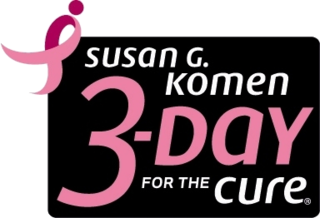Related Research Articles

Hepatitis C is an infectious disease caused by the hepatitis C virus (HCV) that primarily affects the liver; it is a type of viral hepatitis. During the initial infection people often have mild or no symptoms. Occasionally a fever, dark urine, abdominal pain, and yellow tinged skin occurs. The virus persists in the liver in about 75% to 85% of those initially infected. Early on chronic infection typically has no symptoms. Over many years however, it often leads to liver disease and occasionally cirrhosis. In some cases, those with cirrhosis will develop serious complications such as liver failure, liver cancer, or dilated blood vessels in the esophagus and stomach.

Saint Jude Children's Research Hospital, founded in 1962, is a pediatric treatment and research facility focused on children's catastrophic diseases, particularly leukemia and other cancers. The hospital costs about US$2.8 million a day to run, but patients are not charged for their care. It is located in Memphis, Tennessee, and is a nonprofit medical corporation designated as a 501(c)(3) tax-exempt organization by the Internal Revenue Service. St. Jude treats infants, children, teens, and young adults up to age 21 and for some conditions, age 25.

Dance marathons are events in which people dance or walk to music for an extended period of time. They started as dance contests in the 1920s and developed into entertainment events during the Great Depression in the 1930s. Before the development of "reality shows", dance marathons blurred the line between theatre and reality. Also known as endurance contests, dance marathons attracted people to compete as a way to achieve fame or win monetary prizes. The 1969 film They Shoot Horses, Don't They?, based on the 1935 novel of the same title written by Horace McCoy, a bouncer at several such marathons, popularized the idea and prompted students at Northwestern University, Pennsylvania State University, Indiana University, Ohio State University, the University of Florida, the University of Kentucky, the University of Iowa, and the University of North Carolina at Chapel Hill to create charity dance marathons. Marathons could last anywhere from a few hours to several weeks.

Relay For Life is a community-based fundraising event for the American Cancer Society and many other Cancer related institutions, societies and associations. Each year, more than 5,000 Relay For Life events take place in over twenty countries. Events are held in local communities, university campuses and in virtual campaigns. As the American Cancer Society's most successful fundraiser and the organization's signature event, the mission of Relay For Life is to raise funds to improve cancer survival, decrease the incidence of cancer, and improve the quality of life for cancer patients and their caretakers.

The Susan G. Komen 3-Day, frequently referred to as the 3-Day, is a 60-mile walk to raise funds for Susan G. Komen for the Cure and promote awareness to fight breast cancer. Individual participants must raise at least $2,300 to walk 60 miles (96 km) over a three-day weekend.
The Jade Ribbon Campaign (JRC) was launched by the Asian Liver Center (ALC) at Stanford University in May 2001 during Asian Pacific American Heritage Month to help spread awareness internationally about hepatitis B (HBV) and liver cancer in Asian and Pacific Islander (API) communities.

The American Sexual Health Association (ASHA), formally known as the American Social Hygiene Association and the American Social Health Association, is an American non-profit organization established in 1914, that cites a mission to improve the health of individuals, families, and communities, with an emphasis on sexual health, as well as a focus on preventing sexually transmitted infections and their harmful consequences. ASHA uses tools such as education, communication, advocacy and policy analysis activities with the intent to heighten public, patient, provider, policymaker and media awareness of STI prevention, screening, diagnosis and treatment strategies.
San Francisco Hep B Free is a citywide campaign to turn San Francisco into the first hepatitis B free city in the United States. This unprecedented campaign began in 2007, with the objective to screen, vaccinate, and treat all San Francisco Asian and Pacific Islander (API) residents for hepatitis B by providing convenient, free or low-cost testing opportunities at partnering health facilities and events.

St. Luke's Liver Health Outreach is a non-profit organization for people with liver disease. It is based in Houston, and active throughout Texas. It also provides resources about Hepatitis C, sometimes known as the "Silent Epidemic"

Hepatitis B is an infectious disease caused by the hepatitis B virus (HBV) that affects the liver; it is a type of viral hepatitis. It can cause both acute and chronic infection. Many people have no symptoms during the initial infection. In acute infection, some may develop a rapid onset of sickness with vomiting, yellowish skin, tiredness, dark urine, and abdominal pain. Often these symptoms last a few weeks and rarely does the initial infection result in death. It may take 30 to 180 days for symptoms to begin. In those who get infected around the time of birth 90% develop chronic hepatitis B while less than 10% of those infected after the age of five do. Most of those with chronic disease have no symptoms; however, cirrhosis and liver cancer may eventually develop. Cirrhosis or liver cancer occur in about 25% of those with chronic disease.
Pakistan as a developing country is struggling in many domains due to which the health system has suffered a lot. As a result of that, Pakistan is ranked 122nd out of 190 countries in a World Health Organization performance report. Pakistan ranks 154th among 195 countries in terms of quality and accessibility of healthcare, according to a Lancet study. According to the study Pakistan has seen improvement in healthcare access and quality since 1990, with its HAQ index increasing from 26.8 in 1990 to 37.6 in 2016. Pakistan per capita income is 4,920 and the total expenditure on health per capita is $129, which is only 2.6% of GDP (2014). The gender inequality in Pakistan is 0.536 and ranks the country 147 out of 188 countries (2004). The total adult literacy rate in Pakistan is 55% (2014) and primary school enrolment is 73%. Life expectancy at birth is 68 years, Pakistan's population is around 185 million out of which more than 70 million people are living below the poverty line. The proportion of population which has access to improved drinking water and sanitation is 91% (2015) and 64% (15) respectively.

World Hepatitis Day, observed on July 28 every year, aims to raise global awareness of hepatitis — a group of infectious diseases known as Hepatitis A, B, C, D, and E — and encourage prevention, diagnosis and treatment. Hepatitis affects hundreds of millions of people worldwide, causing acute and chronic disease and killing close to 1.34 million people every year.Hepatitis causes liver diseases and can also kill a person.
The Asian Pacific American Medical Student Association (APAMSA), founded in 1995, is the nation's largest organization representing Asian Pacific Islander American (APIA) medical students. APAMSA is a student-governed and national organization that promotes awareness and advocacy of issues affecting the APIA community. They have over 4,500 active medical students, pre-medical students, interns, medical residents, and practicing physicians.
The Asian Liver Center is a non-profit organization at Stanford University, United States, that researches the high incidence of hepatitis B and liver cancer in Asians and Asian Americans. The Asian Liver Center (ALC) was founded in 1996 to spearhead educational outreach and advocacy efforts in the areas of hepatitis B and liver cancer prevention and treatment, serves as a resource for both the general public and health practitioners, and implements clinical and research programs.

Zumba is an exercise fitness program created by Colombian dancer and choreographer Alberto "Beto" Pérez during the 1990s. Zumba is a trademark owned by Zumba Fitness, LLC. The Brazilian pop singer Claudia Leitte has become the international ambassador to Zumba Fitness.
Swim Across America Inc., (SAA) is a nonprofit dedicated to raising money and awareness for cancer research, prevention, and treatment. It does so by hosting charity swims and donating the proceeds to a hospital. Since its founding, SAA has granted over $85 million to fund cancer research and clinical trials. More than 100,000 donations a year are made to support participants in Swim Across America charity swims to meet their fundraising goals. The proceeds from SAA charity swims are granted to fund cancer research at world-renowned hospitals such as Memorial Sloan-Kettering Cancer Center and Johns Hopkins.
Robert Palmer Beasley was a physician, public health educator and epidemiologist whose work on hepatitis B involved extensive investigations in Taiwan. That work established that hepatitis B virus (HBV) is a primary cause of liver cancer and that hepatitis B virus is transmitted from mother to infant during childbirth. Beasley and his colleagues also proved that HBV mother-to-infant transmission is preventable by at-birth vaccination. Due to this work, the World Health Assembly designated HBV as the seventh global vaccine in 1992. He later became the author of HBV immunization policies for the World Health Organization.
The Pinkathon, India's biggest women's run, is an initiative of the United Sisters Foundation and organised by Maximus Mice and Media Solutions Pvt Ltd. It was created with the specific purpose of getting more and more women to adopt a fitter lifestyle and to highlight the need for increased awareness about Breast cancer and other health issues that put women's lives at risk. State Bank of India took up the title sponsorship of the Pinkathon in 2014. The founders of Pinkathon are Milind Soman and Reema Sanghavi.
Shiv Kumar Sarin is an Indian gastroenterologist, hepatologist, medical researcher and writer and a former chairman of the Board of Governors of the Medical Council of India. He is the director of Institute of Liver and Biliary Sciences (ILBS), the first dedicated institution for advanced research on liver diseases and a deemed university under G. B. Pant Hospital, New Delhi. His contributions are reported behind the founding of the School of Hepatology of the Asian Pacific Association for study of Liver (APASL), which is housed at ILBS campus. He is a recipient of the Shanti Swarup Bhatnagar Prize, the highest Indian award in the science category. The Government of India awarded him the third highest civilian honour of the Padma Bhushan, in 2007, for his contributions to Indian medicine.
The Hepatitis B Foundation (HBF) is a national nonprofit organization dedicated to finding a cure for hepatitis B and improving the lives of those already affected by the disease. Established in 1991, the foundation's headquarters is in Doylestown, PA. It is the only non-profit in the United States focused solely on hepatitis B. The foundation conducts biomedical research, promotes disease awareness, and acts as an information source for patients, the medical community, and the general public. The Hepatitis B Foundation's research arm, the Baruch S. Blumberg Institute, has the largest number of non-profit scientists dedicated to hepatitis B research in the world. The organization also leads national public policy initiatives and international public health programs.
References
- ↑ Pang, Angela (7 May 2008). "Run or Walk for LIVERight". AsianWeek: The Voice for Asian America. Retrieved 1 August 2008.
- ↑ SF Station
- ↑ Hepatitis B Foundation
- ↑ World Health Organization